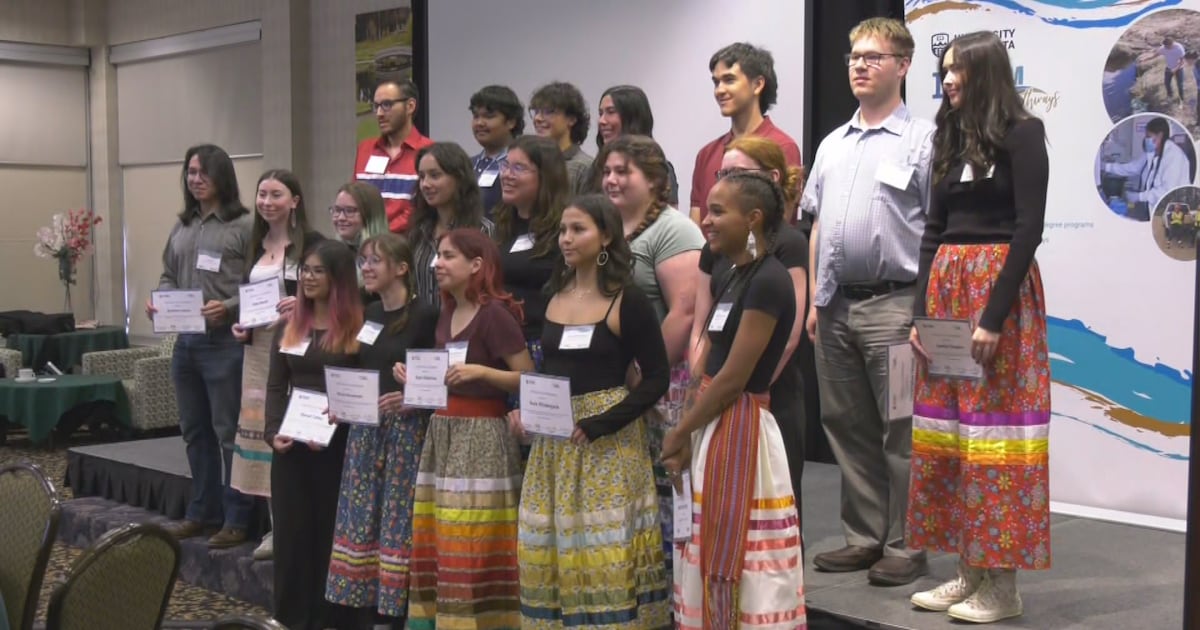Education
Indigenous Students Advance Careers Through Innovative Internship Program

Nineteen Indigenous undergraduates from First Nations, Métis, and Inuit communities recently completed a transformative 16-week internship that equips them for impactful careers in environmental fields. The I-STEAM Pathways program, hosted at the University of Alberta, offered these students a paid opportunity to conduct research in their areas of study while being mentored by faculty and experienced researchers.
For participant Chance Park, the internship involved studying the interaction between a fungus and a mite that attaches to the mountain pine beetle, known for its destructive impact on lodgepole pines. Park elaborated, “The mite feeding on the fungus will produce these chemical compounds, called volatiles, that could, in theory, stimulate growth without physical connection, just by chemical connection.” He was particularly focused on measuring direct biomass of the fungus, which he described as a “pretty cool” experience.
The diversity of research topics undertaken by the interns was notable. Some explored natural immune protection among farm fish, while others examined the exposure of First Nations to wildfires in northern Ontario and the environmental threats facing polar bears, employing cutting-edge nanotechnology.
Throughout the program, interns participated in various activities designed to enhance their academic and professional skills. Park noted the value of attending seminar meetings, engaging in mock candidacy interviews with PhD and master’s students, and enjoying networking lunches with faculty members. He expressed gratitude for the support provided, stating, “They really just support you throughout the way… I’ve met so many professors and obtained numerous research positions just from this internship.”
Dr. Makere Stewart-Harawira, the program lead, emphasized the importance of bridging western scientific knowledge with Indigenous wisdom. “In this time that we’re in of environmental crisis or climate crisis, Indigenous knowledge, but also Indigenous people in positions of influence and policy-making, is so critical,” she remarked. Dr. Stewart-Harawira, who hails from Aotearoa, New Zealand, described her role in the program as a significant privilege, reflecting on the importance of empowering Indigenous students to become leaders in their fields.
The I-STEAM Pathways program serves as a vital initiative for fostering connections between Indigenous communities and academic institutions, ultimately aiming to cultivate future environmental stewards. As these interns embark on their professional journeys, the skills and relationships they have developed during this program will undoubtedly contribute to their ability to address pressing environmental challenges.
-

 Science3 months ago
Science3 months agoToyoake City Proposes Daily Two-Hour Smartphone Use Limit
-

 Top Stories3 months ago
Top Stories3 months agoPedestrian Fatally Injured in Esquimalt Collision on August 14
-

 Health3 months ago
Health3 months agoB.C. Review Reveals Urgent Need for Rare-Disease Drug Reforms
-

 Technology3 months ago
Technology3 months agoDark Adventure Game “Bye Sweet Carole” Set for October Release
-

 World3 months ago
World3 months agoJimmy Lai’s Defense Challenges Charges Under National Security Law
-

 Lifestyle3 months ago
Lifestyle3 months agoVictoria’s Pop-Up Shop Shines Light on B.C.’s Wolf Cull
-

 Technology3 months ago
Technology3 months agoKonami Revives Iconic Metal Gear Solid Delta Ahead of Release
-

 Technology3 months ago
Technology3 months agoApple Expands Self-Service Repair Program to Canada
-

 Technology3 months ago
Technology3 months agoSnapmaker U1 Color 3D Printer Redefines Speed and Sustainability
-

 Technology3 months ago
Technology3 months agoAION Folding Knife: Redefining EDC Design with Premium Materials
-

 Business3 months ago
Business3 months agoGordon Murray Automotive Unveils S1 LM and Le Mans GTR at Monterey
-

 Technology3 months ago
Technology3 months agoSolve Today’s Wordle Challenge: Hints and Answer for August 19









